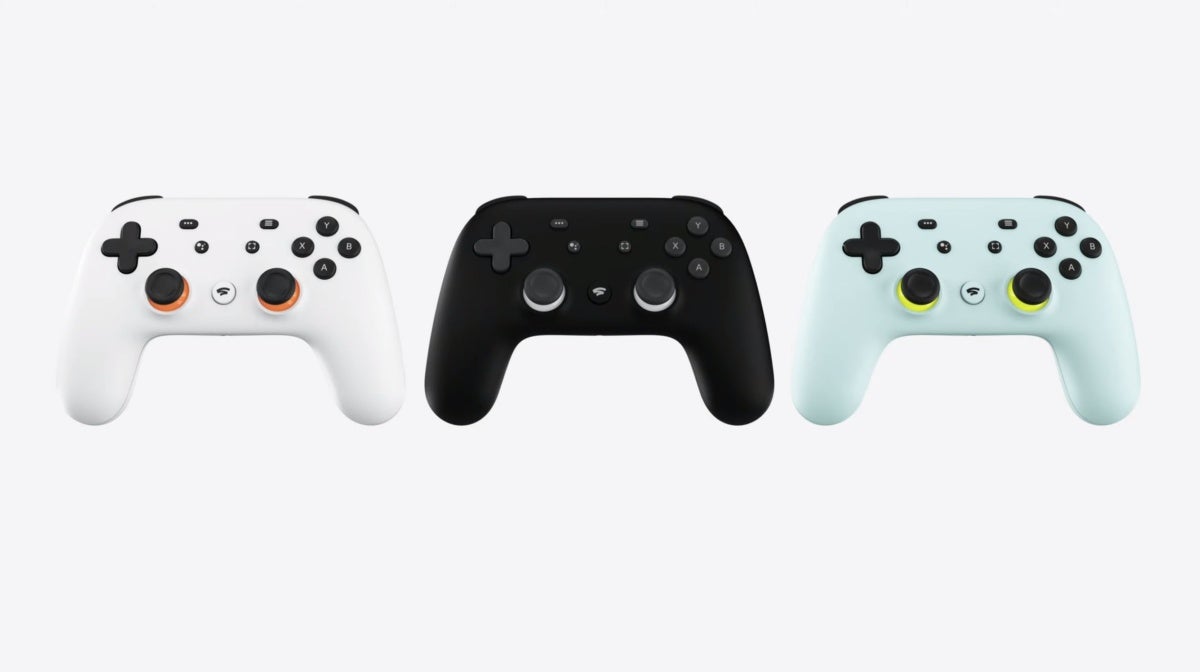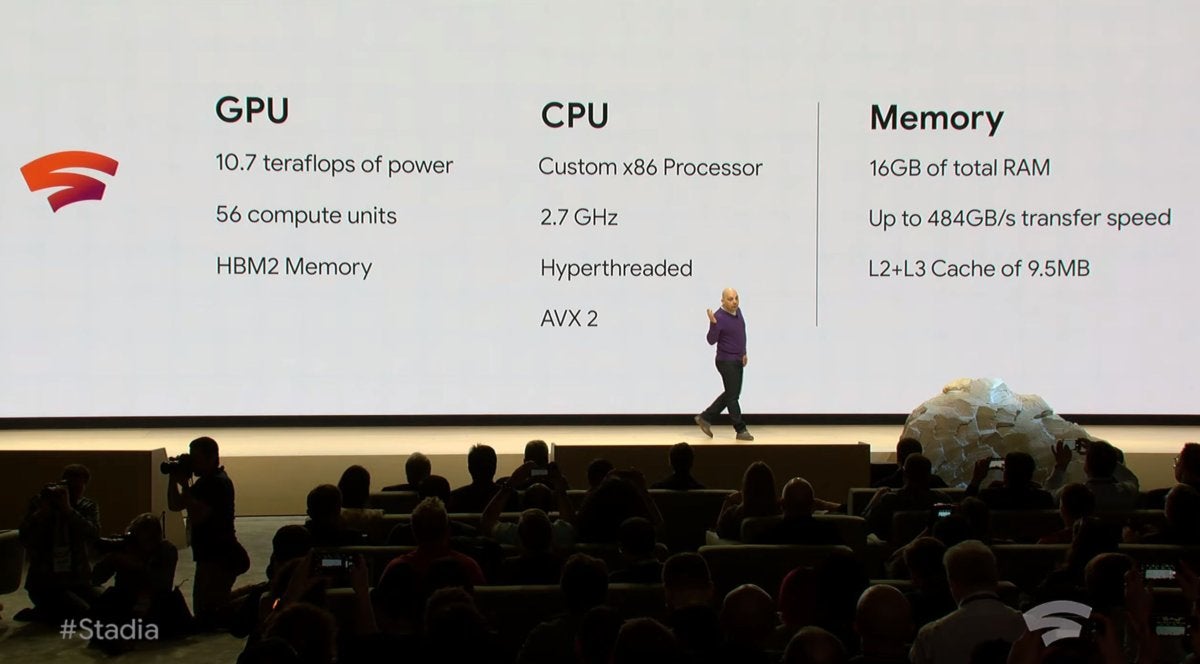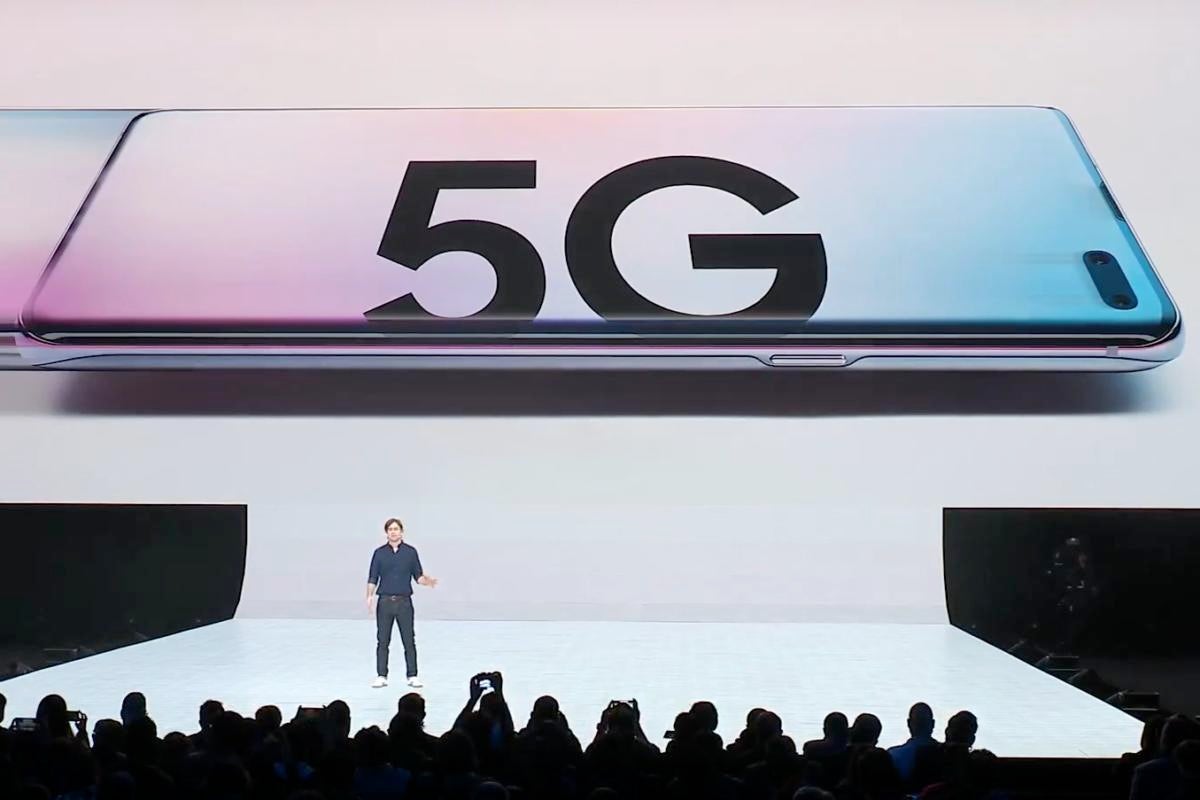Data caps must die: How Google and Microsoft’s cloud gaming ambitions could conquer ISP greed - prestonpostartaing
Directly that Google Stadia and Microsoft XCloud have been unveiled at the Game Developers Conference in San Francisco, it's safe to say cloud gaming has arrived, auspicious a future where content will be streamed to smartphones over fast Wisconsin-Fi and 5G.
But if these services are to brandish, something else must die: the data caps ISPs impose upon most consumer Internet serve plans. No unitary ever likable these limits except the ISPs. Forthwith that John Roy Major tech companies give birth some skin in the streaming pun, data caps may finally have too many enemies to live on.
The data cap struggle is real
ISPs like Comcast put on't offer unlimited wired bandwidth. Or else, they carry out what's known as a data cap, an arbitrary ceiling on how much information you force out download every month. Comcast's information cap is 1,024GB, and the same is offered aside Coxswain and CenturyLink. BroadbandNow tracks all over 200 ISPs in the United States that implement caps, many allowing immoderate less than what top-tier up ISPs dress.
Managing your bandwidth can be a struggle. You don't have to be a gaming diarist to download several games per month and begin consuming 600GB to 700GB of data, especially if you have a family full of digitally starved kids. Patc Comcast offers two separate unitary-month "grace periods," where a user can go beyond the specify without penalty, the standard subroutine for ISPs is to charge you an additional tip per GB.
Cloud play services like Google Stadia work by rendering the game connected a outback server, rather than along a traditional console. The challenge with the remote method acting is to zap user stimulation to servers for processing, then zap back the response, with the immediacy users give birth been trained to have a bun in the oven from wired gaming consoles. Any lag meter beyond a split second toilet render the courageous unplayable. Past cloud play services like OnLive have centred on a wired connection for that really reason.
 Google
Google With Stadia and xCloud, you pauperization tiny more than a controller, a show, and an Internet connection to begin gambling.
For companies that offer streaming services, the math is dolabriform. Both Google and Microsoft are investing tens, if not hundreds of millions of dollars into moving games. Sony's PlayStation Now already does the same. Altogether three companies control their back-end server infrastructure, the drug user port, and the pricing models and storefronts for their services.
Merely neither Google, Microsoft, nor Sony bum verify the vast patchwork of wired and wireless infrastructure between their services and the end exploiter. If a consumer is unnatural by an ISP's information cap, and then it's all for zero. As my colleague Hayden Dingman noted, a enumerate of the conversations surrounding the Google Stadia release related the data necessary merely to play the game. Based on additional conversations I had over the then week, it appears that such concerns are at least well appreciated.
 Google
Google Honestly, Google Stadia's backbone-end specs mean little if that icon can't make your eyes in a punctual manner.
How much bandwidth volition game cyclosis consume?
We unmoving don't know how practically data bequeath be consumed by game streaming on Xcloud or Stadia, merely when compared to the normal information caps, even theoretical numbers look grim. Digital Foundry/Eurogamer has given one of the first new examinations of Stadia's capabilities, including the detail that 1080p cyclosis (across a 25Mbps connection) will be the norm.
That's probably on the rate of a Netflix watercourse at the Lapp resolving power, with a snatch more than up-and-down for controller input. But Netflix already consumes 3GB per hour of HD telecasting . If we assume 12 hours of streaming per day, that amounts to 1,095MB per month, well above the 1,024GB pileus of some major services.
So far, Microsoft has shown XCloud in the context of cyclosis to a phone, so we know that game streaming over 5G will atomic number 4 a priority. With basic plans offering just few gigabytes' valuable of information, it's hard to see how anything but an unlimited plan would oeuvre.
 Samsung
Samsung Cloud gaming data concerns wish affect both wired and wireless ISPs.
The thought angle
Companies with streaming services face a multi-pronged challenge: coaxing an ISP like Comcast or Coxswain to loosen or kill their information caps, and trying to sway wireless ISPs similar AT&T or Verizon to do the identical; and also trying to get the endorse of the FCC, whose interests feature upturned against final disinterest and otherwise consumer issues under the current Administration.
It's a important job, and it's in all probability going to return a lot of corporate firepower to get anything done. Streaming giant Netflix was an early and fairly lonely advocate, having embossed the consternation about data caps since 2016. Information technology seems likely it'll gain new allies shortly, though, if Microsoft, Google, and Sony enter the fray.
Microsoft has repeatedly lobbied for eliminating the "broadband divide" between high-bandwidth connections available to city dwellers and the relatively irksome Digital subscriber line or satellite connections disposable to rural users. If its Xbox play scenario is evolving from a model of "download, and then play" to one where at to the lowest degree some of its users are downloading continuously to play, then it's reasonable to believe Microsoft will but double fine-tune on funding wideband straighten out.
 Day-to-day Caller
Day-to-day Caller Honest broadband straighten out means circumventing this guy: Ajit Pai, the chairwoman of the FCC.
Google actually spent the most in terms of lobbying dollars in 2017 of any company, but on immigration, tax reclaim, and antitrust. Now that Google is offering not unitary but cardinal high-bandwidth services, YouTube and Stadia, it seems presumptive the company will turn its tending to broadband issues also.
While Sony's a untold smaller company, let's just acknowledge that many legislators would recognize a Sony Walkman before they would a Google Pixel 3.
The bottom line, and so, is this: Microsoft, Google, and Sony must straightaway see data caps the same way Netflix does, and the same way of life consumers do: as arbitrary limits that hurt everyone omit the ISPs. No one in government seems to be listening to the average consumer's demands to remainder data caps. If Google, Microsoft, and Sony join Netflix in taking up the cause, we may finally get somewhere.
Source: https://www.pcworld.com/article/403463/data-caps-must-die-how-google-and-microsofts-cloud-gaming-ambitions-could-conquer-isp-greed.html
Posted by: prestonpostartaing.blogspot.com


0 Response to "Data caps must die: How Google and Microsoft’s cloud gaming ambitions could conquer ISP greed - prestonpostartaing"
Post a Comment